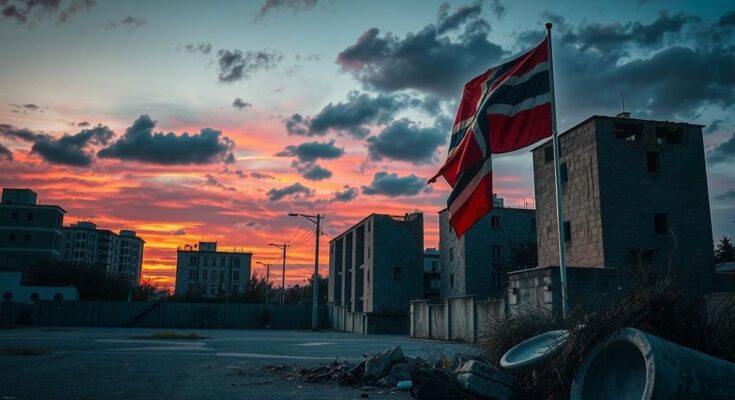The term “Black Hawk Down” refers to the disastrous U.S. military operation in Mogadishu, Somalia, in 1993, which resulted in significant casualties among American soldiers and Somali civilians. Interviews with survivors such as Binti and Saida shed light on the enduring impact of the battle, as they recount loss and trauma. The release of a new Netflix documentary aims to explore these experiences, emphasizing the importance of acknowledging the complexities of the conflict.
The term “Black Hawk Down” refers to the 1993 U.S. military operation in Somalia that resulted in a disastrous battle in Mogadishu, claiming the lives of eighteen American soldiers and hundreds of Somali civilians. As Netflix releases a documentary reflecting on these events, the BBC interviewed several Somalis affected by the conflict. Amid the ongoing civil war, on a seemingly calm October day, residents like Binti Ali Wardhere experienced a harrowing transformation in their lives as violence erupted unexpectedly.
The U.S. military’s involvement in Somalia began in 1992 with humanitarian efforts to combat a severe famine after the central government collapsed. Following an assault on UN peacekeepers attributed to warlord Mohamed Farah Aideed, U.S. forces shifted towards a military operation aimed at capturing Aideed. On October 3, the attempted raid turned disastrous as two Black Hawk helicopters were shot down, resulting in extensive casualties.
Aware of the escalating violence, Binti recalled that the day began peacefully. As the explosions started, she climbed to a rooftop to witness the chaos unfold in her neighborhood. Later, she experienced profound loss when a shell hit her house, killing her husband and two sons and permanently injuring several family members, leading to lifelong psychological trauma for her eldest son.
Ahmed Mohamed Hassan, a cameraman, recorded the battle as it unfolded, capturing the intense firefights and the aftermath of the crashes. His footage provided crucial insights into the conflict and shaped international perceptions of U.S. operations in Somalia. Ahmed outlined his pride in documenting these significant events, although he did not foresee their extensive impact.
On the day of the battle, Saida Omar Mohamud welcomed the birth of her daughter, Amina Rangers. However, the festive atmosphere quickly dissipated as U.S. soldiers turned their home into an emergency medical facility for injured troops. The invasion of their privacy left lasting memories for Saida, who believes that names carry significance, encapsulating the day’s dual nature of joy and horror.
The Netflix documentary aims to share the voices of Somali individuals affected by the conflict, illustrating the multifaceted experiences during the battle. Ahmed emphasized the importance of presenting both sides of the narrative. Nevertheless, Binti called for recognition, stating that families like hers remain in obscured grief from the invasion’s consequences, urging for acknowledgment and reparative actions from the U.S.
The Battle of Mogadishu, witnessed on October 3, 1993, marked a pivotal moment in U.S. military involvement in Somalia. Initially, American troops were deployed to provide humanitarian assistance amid a famine; however, the situation escalated into military conflict with the notorious warlord, Farah Aideed. This battle led to significant casualties on both sides and has since been regarded as a failure for U.S. foreign military policy in Africa, influencing subsequent international interventions in other crises.
The events of the Battle of Mogadishu left an indelible mark on many Somali families, leading to profound losses and ongoing trauma. As illustrated by testimonies from individuals like Binti and Saida, the memories of that day remain vivid and painful. Acknowledgment of the devastation caused and the need for reparative measures are critical points raised in the dialogue surrounding the legacy of the U.S. intervention in Somalia.
Original Source: www.bbc.co.uk




